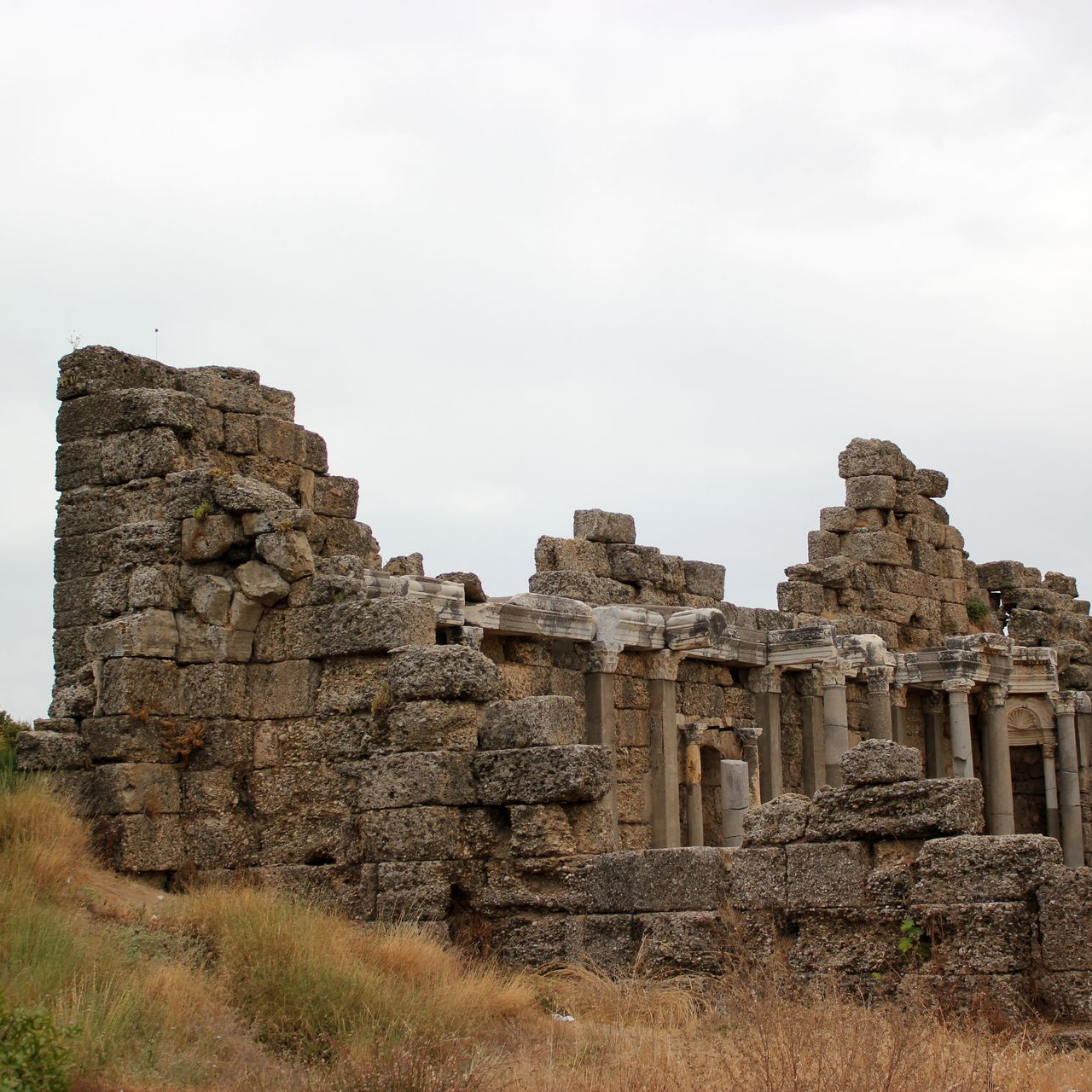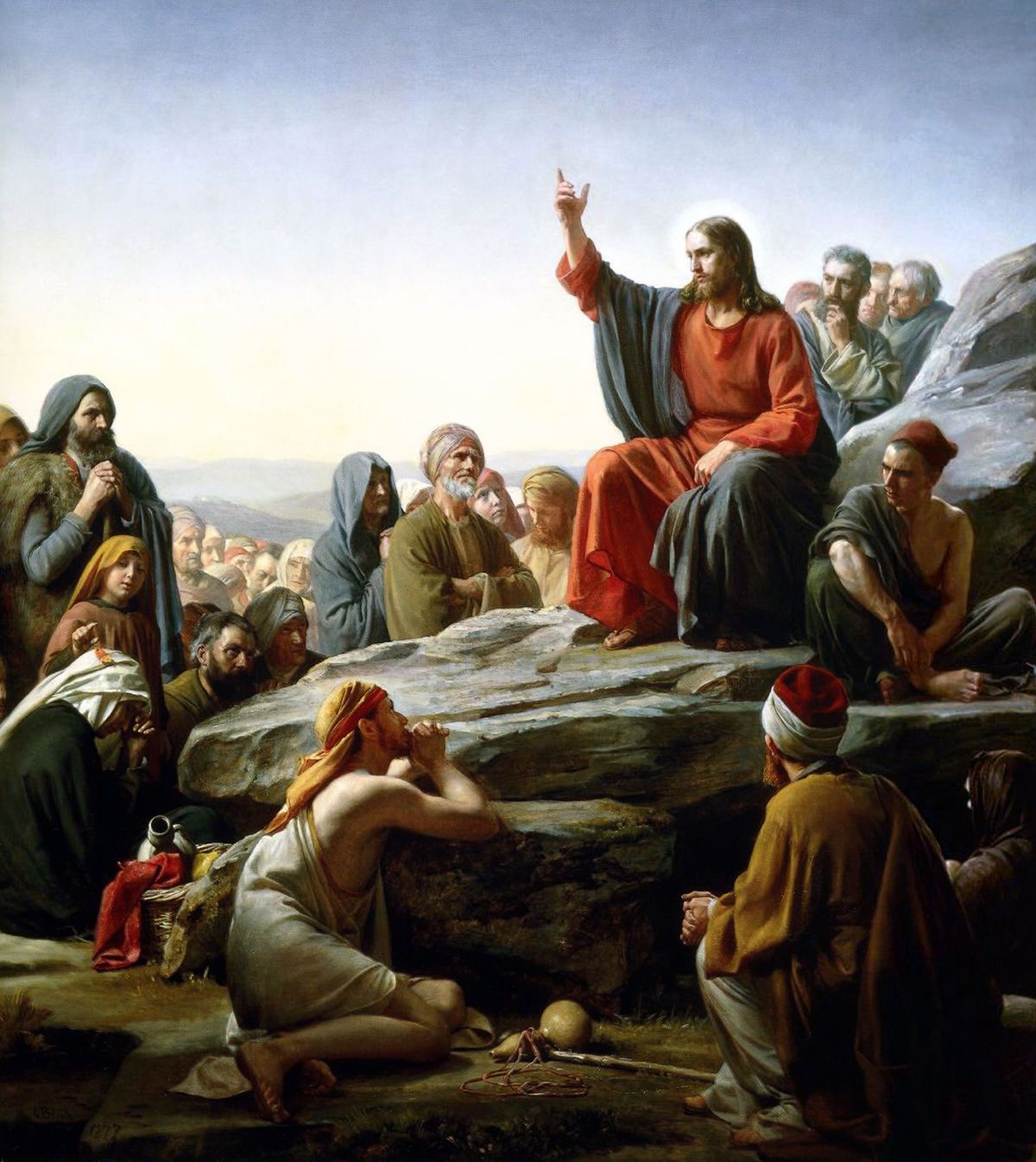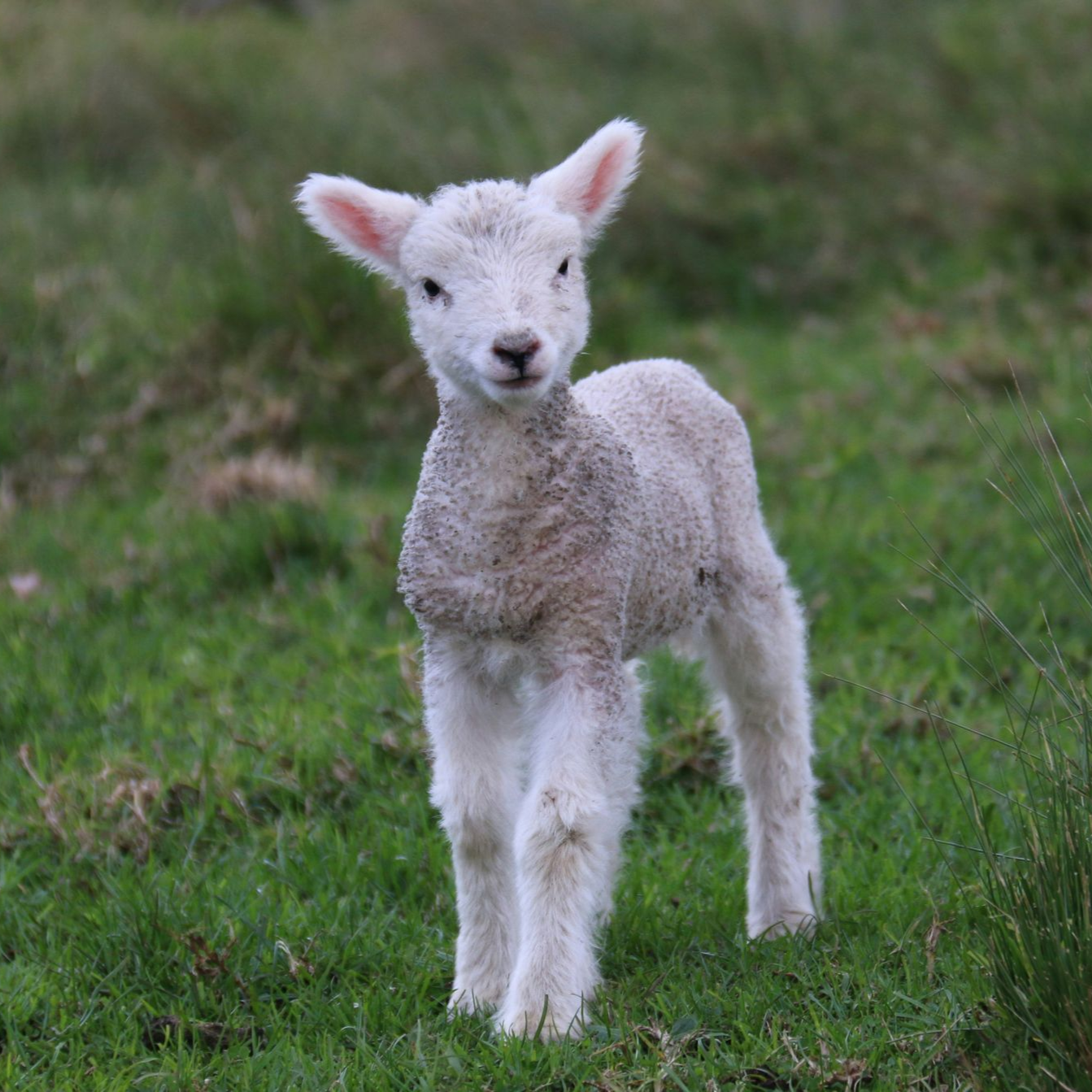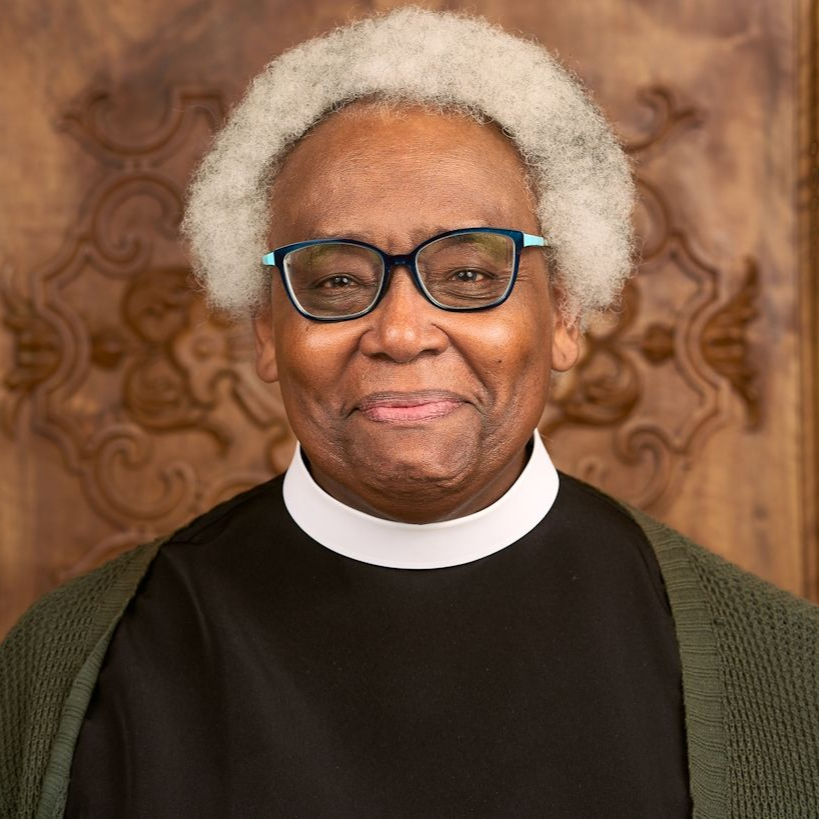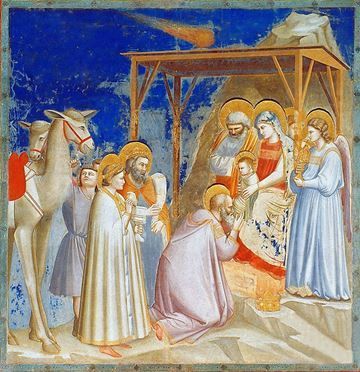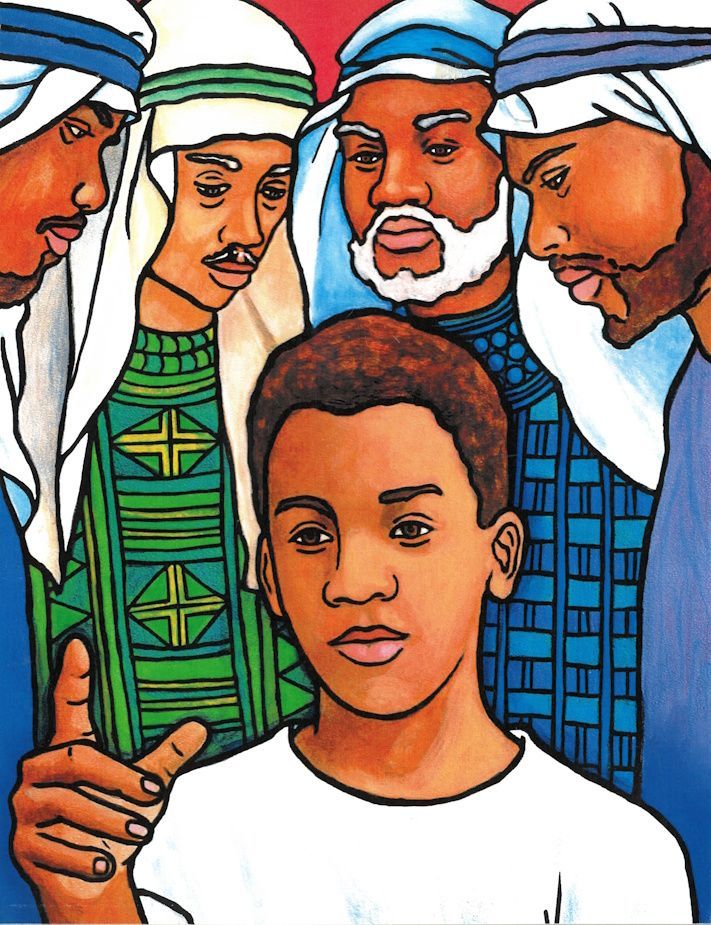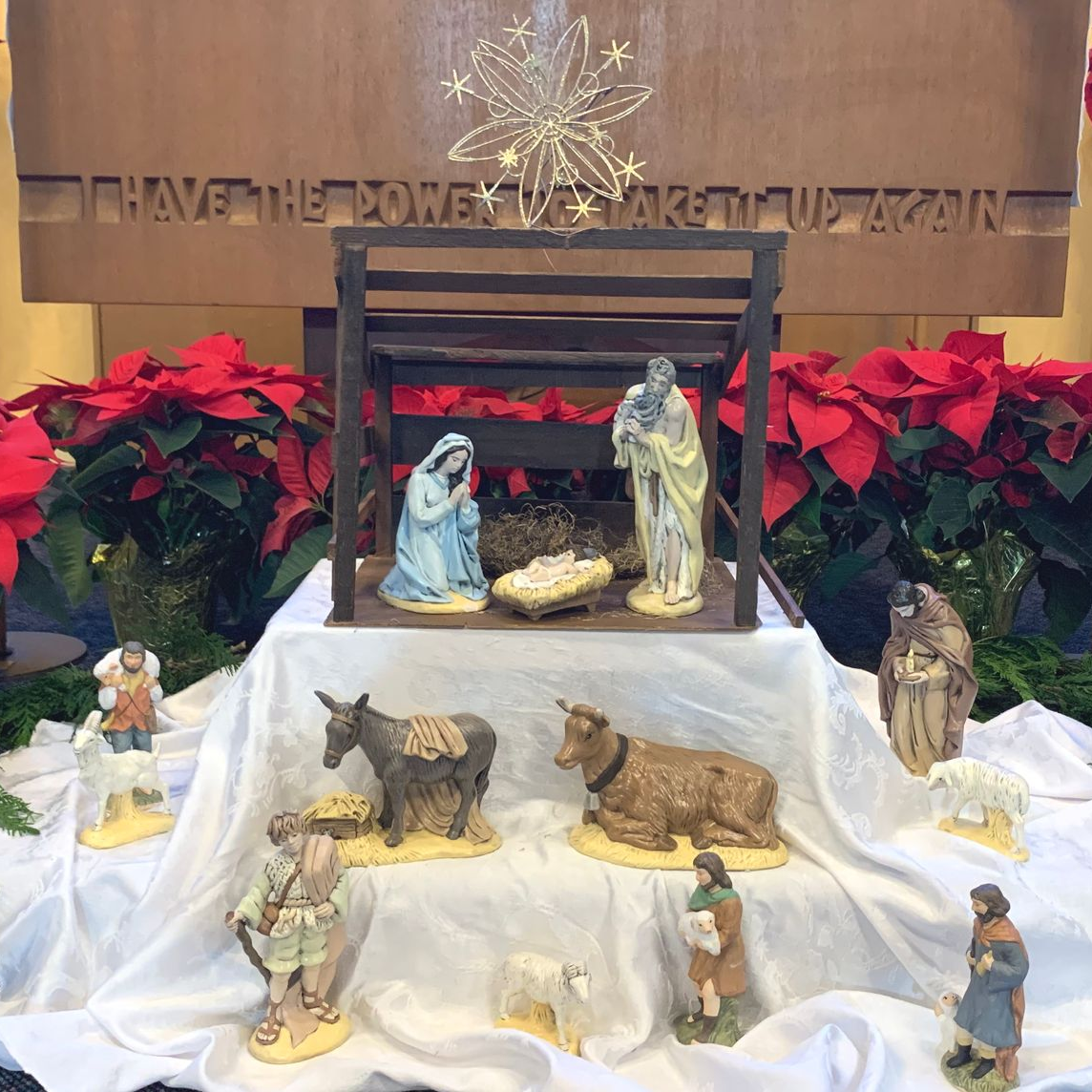Sharing in the Feast
"This table is big enough for the whole world!"
2025-54
sermon preached at Church of the Good Shepherd, Federal Way, WA
www.goodshepherdfw.org
by the Rev. Josh Hosler, Rector
All Saints Sunday (Year C), November 2, 2025
Daniel 7:1-3,15-18 ; Psalm 149 ; Ephesians 1:11-23 ; Luke 6:20-31
Many years ago at St. Thomas Church in Medina I led a workshop for children about baptism and communion. I invited a group of about 16 kids to come stand around the altar, a much larger altar than ours. They were feeling a bit chatty and rambunctious, so I took a moment to get their attention. I said, “What a big table this is! Some of you can’t even see over the top! I wonder how many people can fit around this table? Fifteen? Twenty?”
And a little first-grade girl replied with hushed awe, “This table is big enough for the whole world.”
This, my friends, is why we are here. This table is big enough for the whole world, and so we set the table every week. And we invite others to the table by baptizing them.
Baptism is what makes you a Christian—a member of Christ’s Body. You might have been a believer first, but baptism is the public ritual that fully incorporates you into a community whose work is to keep making the table bigger. We baptize infants because we want to give them the gift of this table right away. We baptize teenagers and adults who choose intentionally to follow in the Way of Jesus. Those who are baptized make vows, and then we all help each other uphold them. To be a Christian is to be a part of a community in which you can be planted and grow throughout your life.
Once you are baptized, God has work for you to do. The purpose of the work is not to “save souls”—that’s Jesus’ work, and it’s already finished. Rather, our work is simply to share the Good News with everyone. Author Madeleine L’Engle, who was an Episcopalian, put it this way: “We draw people to Christ not by loudly discrediting what they believe, by telling them how wrong they are and how right we are, but by showing them a light that is so lovely that they want with all their hearts to know the source of it.”
Lately I’ve been asking you all for good news. The word Gospel means exactly that, “good news.” To share the Gospel is to share Good News with the whole world—not to convince them, not to convert them, but to burst with joy at what we have experienced God doing. So, then:
The Good News is the hope that rises in the midst of despair.
The Good News is the life that bursts through the brutality of death.
The Good News is the healing that leads to gratitude.
The Good News is the justice that comes swiftly enough to be strong, but gently enough to last forever.
The Good News is the mercy that destroys all shame and equalizes us before God.
If you have experienced any of these things and believe them to have originated with the Creator of the Universe, then you have good reason to seek baptism. You have good reason to root yourself in Christian community. And you have Good News to share. Your Good News is the Way of Jesus.
Today we observe the Feast of All Saints. This is a day we set aside to remember all those who have gone before us in the Christian faith. Usually when we talk about the saints, we mean the Saints with a capital S, from Peter and Paul to Francis and Clare of Assisi, from Dietrich Bonhoeffer and Martin Luther King, Jr. to Florence Nightingale and Cesar Chavez and Dorothy Day.
But then there are all the rest of us, lowercase saints. We hear today of Christ’s “glorious inheritance among the saints”—that is, the holy ones. We are not less valued than capital-S Saints … just less famous. God honors our efforts, too. On another occasion I gathered a group of children around a baptismal font and asked if they wanted to see what a saint looks like. Then I invited them to hoist themselves up and look into the water. There they saw their own reflections!
In a few minutes we will renew our baptismal vows, as we do several times each year. As we do so, I invite you to call to mind the ones you love but see no longer—people from your life, your forerunners in the faith. Know that they are here with us, and when you come to this table—this table that is big enough for the whole world—know that it’s far bigger even than that little girl could have imagined. For God is the God of the living and the dead, all of whom are alive in God eternally.
The full tapestry of God’s universe simply cannot be imagined; we only ever see a tiny part of it. The Church is not God’s only project. Yet we Christians understand Jesus’ life, death, and resurrection to have made the difference for absolutely everybody, whether they know it or not. Jesus uses the one thing we all share—death—to conquer death and invite everybody in. At least, that’s how we Christians understand it. And so we are to work for justice, practice mercy, and share in the feast. The table is certainly big enough. Our job is to make sure we always have a bunch of extra chairs lying around, so that others can more easily share in the feast.
I know you’re used to me speaking metaphorically, but for a moment I’m going to be quite literal. When we gather for coffee after the service, do you sit at a table with others? Does the table fill up? Grab two extra chairs and add them to the table. Better yet, keep your eyes peeled for the person who looks the most unfamiliar and uncertain, and gently invite that person in. And be sure to wear your nametag!
When you meet someone who has come to Good Shepherd for the first time, ask open-ended questions and invite deeper conversation. You can start with the weather and the Seahawks and “what do you do for a living?” But don’t get stuck there. Listen for their feelings, and share your own. Ever so gently, get past the small talk.
The goal is not to add more people to an ever-growing list, just for the sake of a longer list. The goal is human relationship. It is just as worthwhile to know people who are passing through as it is to know people who might sign up for a class or turn in a pledge card. We are all included in God’s embrace. If that were not the case, how could it truly be Good News?
We hear today of “the hope to which [God] has called us.” As we mature in faith, we become ever more comfortable sharing in words the shape of that hope, through the stories of our lives, through the content of our prayers, through our deepest reflections on what the events in our lives might really mean. The more we share our hope authentically, the more people will hear and want to participate. We will let our light shine, a light so lovely that others simply must learn its source.
Now, we know that sometimes we fail; that’s why we confess our sins and look forward to a fresh start. Many of the folks whose lives we touch will not want to join us, either because we failed to meet them where they are, or for some reason beyond our control. It’s good to be gentle with ourselves about this, because while the Church may lose people, God won’t. In the meantime, many people will want to join us. And so we will keep adding more chairs to the table, because a congregation with an outward focus is most useful to the Holy Spirit.
Sharing in the feast is hard work, of course. We might feel shy about sharing our story with others. We might feel we don’t know how to include without seeming presumptuous, to share our faith without sounding condescending. We may find that it’s tough to dedicate ourselves to building community without sacrificing more of our independence than we’d like.
But those are just minor hurdles. Did you hear Jesus’ words today? Jesus tells us the poor are blessed, but woe to the rich—the hungry are blessed, but woe to the well-fed. He tells us that when we are persecuted, we are blessed, but that when all speak well of us, we’re in trouble. These sayings run contrary to our common-sense observations of the world. And to embrace these standards fully may even invite danger on ourselves and those we love.
So we should not be surprised that often we find we cannot just turn the other cheek, even when we know that’s the goal. We cannot love our enemies and pray for our abusers, even when we know that’s what’s been asked of us. We know the gold standard—we just don’t do it. What are we to do, then? How do we include those whose actions are hostile to the possibility of community?
There is much work we can do in this area, too, but hear me well when I say this: We are not required to share the feast with those who exclude and harm others. If you invite in both sheep and wolves, then in the end you’ll only have wolves. A former mentor of mine put it this way: “All are welcome at this table except those who would unseat others from the table.” This table is a sign and a symbol of God’s eternal table. It is not, itself, the full realization of what God wants for us, because w cannot complete that work all by ourselves … and God cannot complete that work hurriedly or carelessly.
That larger table is what our Christian hope is always straining toward. It is the focus of the trust we strive to build all our lives. In some mysterious way, someday, all pain and trauma will be healed, and all people will be reconciled to one another. God’s love will triumph. But God insists on sharing that triumph with us, inviting us to succeed and to fail and to learn and grow through it all.
Until then, we work and we pray—and when people are hungry, we provide for them their daily bread. But on that great Day, we will all join around that heavenly banquet table to share in the eternal feast … the table that really is big enough for the whole world. Amen.


